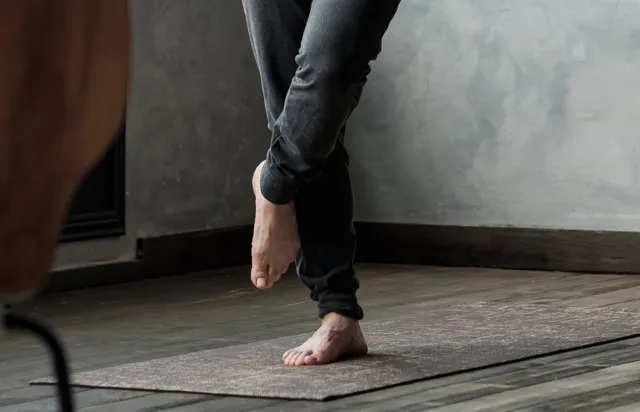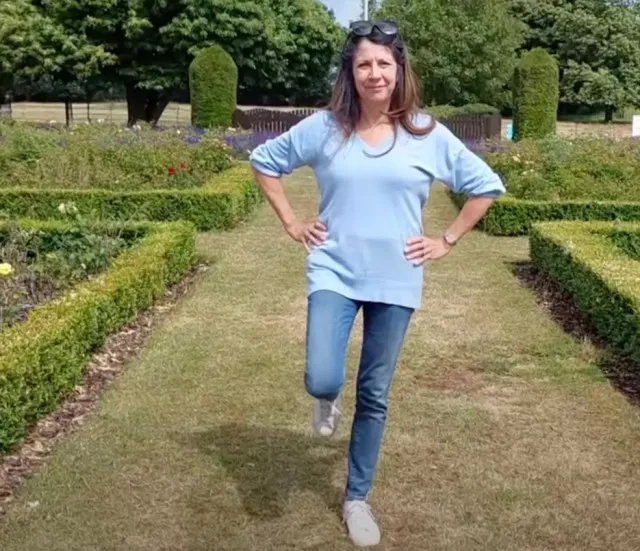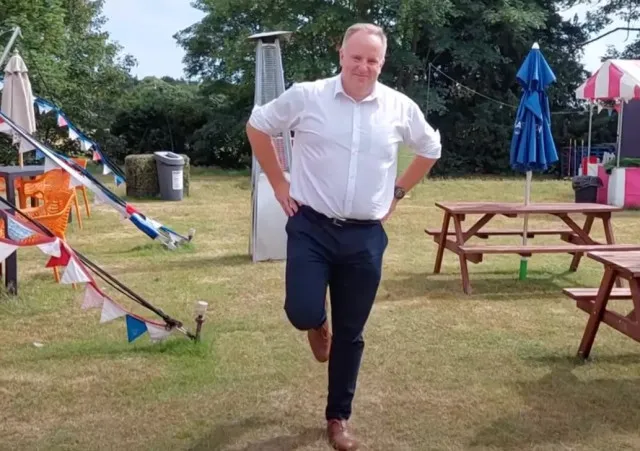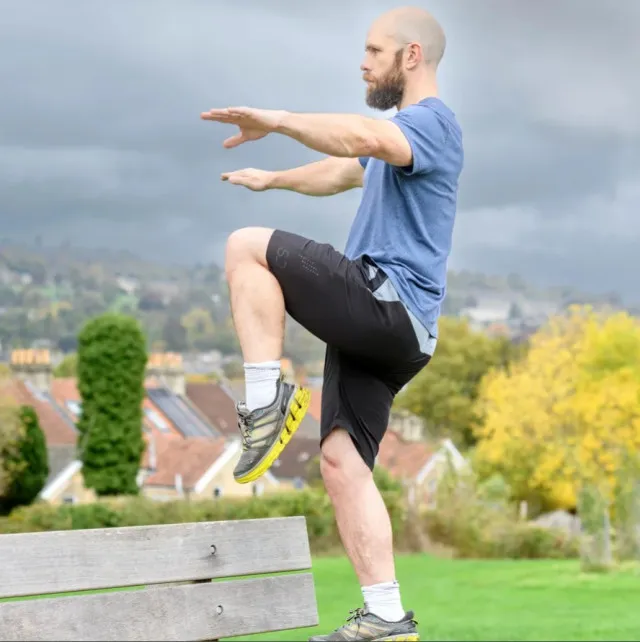A simple balance test, requiring a person to stand on one leg for 10 seconds, may help predict long-term health risks.
Balancing on one leg might seem easy, but it holds clues about your health, experts say.
Your ability to stand on one leg could tell more about your well-being than you think.
Health professionals suggest that this simple test may indicate a higher chance of passing away in the next decade.

How to perform the one-leg balance test and what your results mean
The test involves standing on one leg with your hands on your hips.
By lifting your dominant leg off the ground and timing how long you can hold the position, you might uncover important details about your health.
The UK’s National Health Service (NHS) has set time benchmarks for different age groups to assess their balance.

For instance, individuals aged 18 to 39 are expected to stand for about 43 seconds, while those in the 40-49 age group should aim for 40 seconds.
The time decreases with age, with 70-79-year-olds expected to balance for 18 seconds and those over 80 for a little over 5 seconds.
Research in the British Journal of Sports Medicine suggests that adults unable to balance on one leg for 10 seconds may face twice the risk of death from any cause.
This risk spans the next 10 years.
This straightforward test, known as the ‘flamingo challenge,’ offers a quick way for individuals to assess their health status.
Selina Lim, a Divisional Director at the NHS East Suffolk and North Essex NHS Foundation Trust, shows the importance of this balancing test in evaluating health.

Lim notes that people who struggle to maintain balance for the recommended time may be at greater risk of health problems.
She explained: “We know that people who struggle to balance for the expected amount of time are at a higher risk of developing ill-health as they age.
“By taking part in the ‘flamingo challenge’ people can quickly and easily assess for themselves whether they are at risk.
If they are, there are lots of different activities they can engage in that can help improve their overall fitness.”

This risk tends to increase with age.
Completing this test can help individuals identify potential health risks and take steps to improve their fitness levels.
Debbie Dyer, a Clinical Lead for Ageing Well and Anticipatory Care at the North East Essex Alliance emphasizes the benefits of regular exercise in enhancing balance and overall health, especially with age.
Engaging in physical activities not only contributes to physical health but also plays a significant role in mental well-being.
Dyer stresses that leading an active lifestyle can enhance the chances of aging independently and in good health.

She said: “We all hope to live independently and in good health as we get older, and leading an active lifestyle is an important factor in improving our chances for doing just that.
“Moving our bodies more day-to-day brings immediate benefit, too. Exercise is brilliant for mental health and is a great way of meeting new people in your community.
“The longer daytime hours make summer the ideal time to be getting out and about as much as you possibly can, however old you are.
“The fitter and healthier you are, the better your mental wellbeing, and the longer you will retain your agility, strength, and balance into later life.”
As people grow older, maintaining balance becomes more challenging due to the natural aging process.
However, integrating regular exercise into daily routines can help individuals retain agility, strength, and balance as they age.